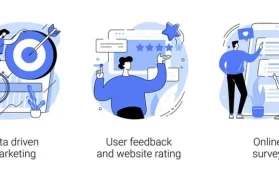
Navigating the landscape of abortion access in Oklahoma is both complex and crucial as the state grapples with evolving legal frameworks and societal attitudes. Understanding the rights, restrictions, and resources available to individuals seeking abortion services is paramount for informed decision-making. Against a backdrop of legislative challenges and practical barriers, this article aims to provide a comprehensive overview of accessing abortion in Oklahoma, exploring legal considerations, clinic availability, financial implications, and alternative resources. By shedding light on these critical aspects, we hope to empower individuals with the knowledge to navigate their reproductive choices with clarity and confidence.
Can you get an abortion in Oklahoma?
Yes, you can get an abortion in Oklahoma, but it’s essential to be aware of the state’s legal regulations and the practical challenges involved. Oklahoma has various restrictions in place, including gestational limits, mandatory waiting periods, and parental consent requirements for minors. Additionally, the state has a limited number of abortion clinics, which may pose logistical challenges for individuals seeking services, particularly those living in rural areas. Despite these obstacles, there are organizations and resources available to provide support and assistance to individuals navigating the process of obtaining an abortion in Oklahoma.
Understanding Abortion Laws In Oklahoma
Understanding abortion laws in Oklahoma is crucial for individuals seeking reproductive healthcare in the state. Oklahoma has implemented various restrictions on abortion, including gestational limits, mandatory waiting periods, and parental consent requirements for minors.
Oklahoma law prohibits abortions after a certain gestational age, typically around 20 weeks post-fertilization. However, exceptions may be made in cases of medical necessity to protect the health or life of the pregnant person.
Before obtaining an abortion, individuals in Oklahoma must comply with mandatory waiting periods. This means they must receive counseling and then wait a period, often 24 hours before the procedure can be performed. This requirement can create logistical challenges and delays for individuals seeking abortion services.
Minors seeking abortions in Oklahoma are generally required to obtain consent from a parent or legal guardian. However, there are exceptions to this requirement, such as obtaining a judicial bypass if obtaining parental consent is not possible or not in the minor’s best interest.
Oklahoma also mandates that individuals seeking abortions receive certain information about the procedure and its potential risks and alternatives. This information is typically provided through counseling or written materials.
Oklahoma, like many other states, has implemented TRAP laws that impose regulations specifically targeting abortion providers. These regulations may include requirements related to clinic facilities, staffing, and licensing, which can impact the availability and accessibility of abortion services.
The Impact Of Federal Rulings
The impact of federal rulings on abortion laws in Oklahoma is significant, often shaping the legal landscape and affecting access to reproductive healthcare services. Federal rulings can either reinforce or challenge state-level abortion restrictions, influencing the practical implementation of laws in Oklahoma.
Constitutional Interpretations: Federal rulings, particularly those issued by the United States Supreme Court, have established fundamental constitutional principles regarding abortion rights. For example, the landmark case Roe v. Wade (1973) affirmed the constitutional right to abortion, establishing a framework for legal abortion access nationwide. Subsequent rulings, such as Planned Parenthood v. Casey (1992), further clarified the legal standards for evaluating state abortion laws, including the undue burden standard.
Challenges to State Laws: Federal rulings often serve as the basis for legal challenges to state-level abortion restrictions. Advocacy organizations and individuals may challenge Oklahoma laws that they believe infringe upon constitutional abortion rights or impose undue burdens on individuals seeking abortion services. Federal courts may issue rulings that strike down or modify state laws deemed unconstitutional or violate federal statutes.
Enforcement and Compliance: Federal rulings can influence how state officials enforce and comply with abortion laws in Oklahoma. Following federal court decisions, state agencies and law enforcement may be required to adjust their practices to ensure compliance with constitutional standards. This may involve modifying regulations, updating policies, or refraining from enforcing laws deemed unconstitutional.
Impact on Access: Federal rulings can have a direct impact on access to abortion services in Oklahoma. Rulings that uphold abortion rights or invalidate restrictive state laws may enhance access by removing barriers or expanding options for individuals seeking abortions. Conversely, rulings that uphold or reinforce state restrictions may limit access by imposing additional requirements or regulations on providers and patients.
Navigating Personal Decisions And Legal Rights
Navigating personal decisions and legal rights regarding abortion in Oklahoma is a multifaceted process that requires careful consideration and understanding of individual rights, legal protections, and available resources.
Understanding Individual Rights:
- Individuals seeking abortion services in Oklahoma have fundamental rights to privacy and bodily autonomy, as recognized by federal and state laws.
- It is essential to understand that these rights encompass the ability to make informed decisions about reproductive healthcare without undue interference or coercion.
Legal Protections Against Coercion and Harassment:
- Oklahoma law provides protections against coercion and harassment for individuals seeking abortion services. This includes safeguards against intimidation or threats from third parties attempting to interfere with a person’s decision to terminate a pregnancy.
- Individuals should be aware of their rights to seek legal recourse if they experience coercion or harassment while accessing abortion services.
Counseling and Decision-Making Support:
- Counseling services are available to individuals considering abortion in Oklahoma, providing essential information, support, and guidance throughout the decision-making process.
- It’s crucial to seek out reputable counseling services that offer non-biased information and respect individuals’ autonomy in making their reproductive healthcare decisions.
Importance of Informed Decision-Making:
- Informed decision-making is critical to ensuring that individuals understand the implications and potential consequences of their choices regarding abortion.
- This involves accessing accurate information about the procedure, including its risks, benefits, and alternatives, and considering personal circumstances and values.
Psychological and Emotional Considerations:
- Deciding to have an abortion can be emotionally complex, and individuals may experience a range of feelings before, during, and after the procedure.
- It’s important to prioritize self-care and seek support from trusted friends, family members, or mental health professionals if needed.
Legal Recourse and Advocacy:
- Individuals should be aware of their legal rights and options regarding abortion in Oklahoma, including avenues for seeking legal assistance or advocacy if they encounter barriers or challenges.
- Advocacy organizations and legal advocates can provide valuable support and assistance in navigating legal issues related to abortion access and rights.
Warping Up
Navigating the landscape of abortion access in Oklahoma requires a comprehensive understanding of the legal framework, practical challenges, and available resources. Despite the state’s restrictive laws and potential barriers, individuals have rights to privacy, bodily autonomy, and access to reproductive healthcare services. By staying informed about abortion laws, seeking support from counseling services and advocacy organizations, and prioritizing informed decision-making, individuals can navigate their reproductive choices with clarity and confidence. It’s crucial to recognize the importance of advocating for abortion rights and access, supporting individuals in making autonomous decisions about their bodies and futures. With ongoing education, advocacy, and support, we can work towards ensuring equitable access to safe and legal abortion care for all individuals in Oklahoma and beyond.
FAQ’s
Do you need parental consent for abortion in Oklahoma?
Yes, minors seeking abortions in Oklahoma are generally required to obtain consent from a parent or legal guardian. However, there are exceptions to this requirement, such as obtaining a judicial bypass.
Are there any abortion restrictions in Oklahoma?
Yes, Oklahoma has implemented various abortion restrictions, including gestational limits, mandatory waiting periods, and parental consent requirements for minors. Additionally, the state has TRAP laws that impose regulations on abortion providers.
Are there alternatives to abortion in Oklahoma?
Yes, there are alternatives to abortion in Oklahoma, including adoption services and parenting support resources. Additionally, individuals may have access to contraception methods and family planning services to prevent unintended pregnancies.





